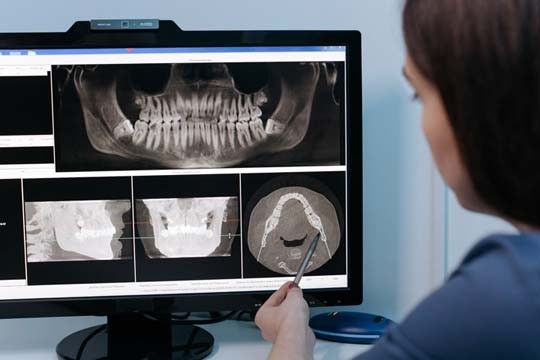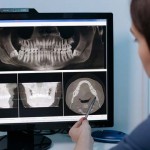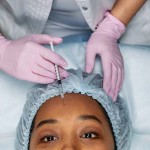"People with jaw pain, jaw clenching, or similar disorder are very likely experiencing a Temporomandibular Joint Disorders, often referred to as TMD or TMJ. Dentists are highly educated and trained to deal with facial muscles and the jaw and are perhaps the best-qualified health professionals to diagnose and treat these problems. There are a variety of treatment options and I have found that Injection Treatments can provide months of relief to my patients," stated Dr. Lauren Nguyen, cosmetic dentist and owner of Pinnacle Dental in Houston, Texas. "Injections are safe and it is a treatment strategy that is both reversible and non-surgical. And although it is primarily known for its cosmetic applications with facial wrinkles, its's uses have multiplied for a number of muscle-generated dental disorders. And it has provided pain-relief with patients that suffer from migraines."
What Is The Difference Between TMJ and TMD?
TMD is short for "temporomandibular joint disorder". TMD is a more comprehensive term and refers to various disorders or issues that can affect the temporomandibular joint or TMJ. TMJ refers to the joint that connects the jaw to the skull and it is described by some medical professionals as "small and delicate".
What Are The Signs Of TMJ?
There are a variety of different symptoms associated with TMJ. The most common symptoms are as follows:
- pain when opening or closing the jaw
- popping or clicking noises when the jaw is moved
- persistent headaches or migraines
- pain in the facial muscles
- jaw soreness or tenderness
- pain in the neck muscles
- swelling of the neck or face
- earches or tinnitus
- unusual sounds in the ears
What Is The Main Cause Of TMJ?
TMJ disorders generally affect the jaw joint and the key muscles and ligaments attached to and surrounding the joint. The most common causes are:
- injury / trauma
- stress
- improper / misaligned bite
- bruxism or clenching and grinding of the teeth
- genetics
- arthritis
- wear and tear
"I have been surprised by the number of patients who have entered my dental office with complaints about jaw, face, and neck pain. And many of them are dealing with a great deal of stress in their lives. Studies indicate that stress is one of the leading causes of TMJ and I have found that to be true in my dental practice. There are several TMJ treatment options available and I discuss all of them with my patients. Often injections are the treatment of choice because the benefits last for months," commented Dr. Nguyen.
How Do You Test For TMD?
- For a TMD diagnosis the usual beginning point for a doctor or dentist is to ask about the patient's medical history.
- Next dental X-rays of the jaw and teeth will be taken and examined.
- More detailed images of the joint bones can be gathered with a CT scan.
- Additional information about the joint's disk and surrounding soft tissue can be developed with an MRI
Dr. Lauren Nguyen graduated from the University of Texas Health Science Center at San Antonio with a Doctor of Dental Surgery degree. She has been a practicing cosmetic dentist since 1998 in the Galleria and Uptown areas of Houston, Texas. To stay up-to-date on the latest cosmetic dental technologies, she continues to attend extensive postdoctoral studies in advanced dentistry with a focus on cosmetic dentistry. And she is qualified to provide injection treatments to all of her patients. She has one of the larger patient lists in the Houston metro area.






















